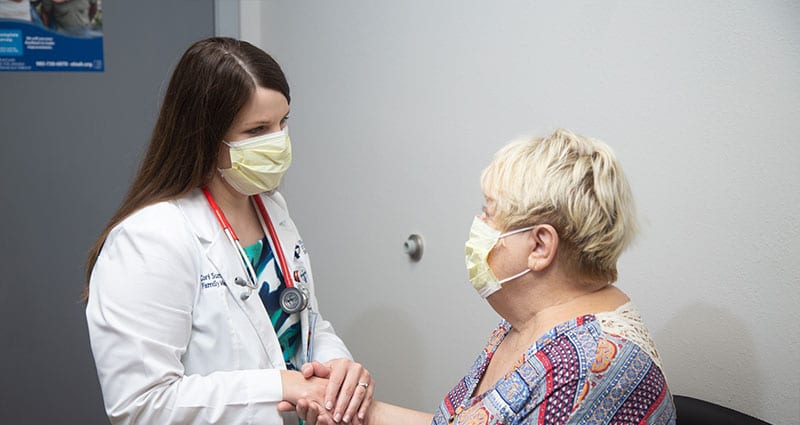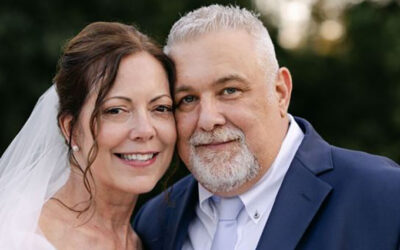As a family medicine physician in a rural community, Cori Sumrall, DO, takes seriously the responsibility to care for the whole person. That means that during visits with patients, Dr. Sumrall makes sure they know they can feel comfortable opening up to her about physical problems as well as any mental or emotional issues they are facing.
“I have patients who have primarily anxiety and depression, where a lot of it stems from external issues or family problems,” she said. “It makes you feel good as their physician when they feel they are able to trust you and confide in you about private matters. I feel like in those moments, they appreciate us the most, because they know we care about the entire situation.”
In the Bogalusa clinic where Dr. Sumrall works, most patients undergo a depression screening before seeing a physician. Their answers to those questions help guide the discussion.
“Sometimes, the patient won’t bring up any issues, but I can see that their screening indicated depression,” she said. “If that happens, I’ll ask about any issues they are facing. That usually opens them up to talk to me. If they are coming to me specifically for that reason, I usually start the visit by asking what brought them in that day. I just really try to make them feel comfortable and know that they can talk to me about anything that they are dealing with.”
No matter a patient’s concerns, Dr. Sumrall said she always makes sure she is engaged in active listening and indicating to the patient that she understands what they are telling her. Although she often needs to take notes or document issues, Dr. Sumrall said she makes sure to spend at least half of each visit making direct eye contact with patients.
“I want them to know I am tuned in to them and not distracted by my computer,” she said. “I also think general body language is important. I like to look at someone and face them. After they speak, I like to summarize what they have said to make sure I did not miss any details and let them know that I have heard their concerns.”
That kind of open communication has helped Dr. Sumrall build strong relationships with patients over time. In turn, that rapport can lead to more appropriate treatment and better health outcomes.
“I have had some patients who will tell me another doctor they saw didn’t even look at them during the visit,” she said. “They appreciate that I take the time and attention to listen. It’s a good feeling to know that something I have done has made a difference and connected with them. It makes them feel more comfortable and more open about their concerns.”
Because each visit in the clinic only lasts about 15 minutes, Dr. Sumrall also advises her patients to come prepared. She encourages them to write down their health questions, any medications they are taking and anything else they want to address, then prioritize which of those issues are most pressing.
“I always emphasize to them that they can call me or send a message if they have questions we weren’t able to get to during the visit,” she said. “It’s important to have an open line of communication and the ability for them to follow up.”
Overall, Dr. Sumrall said she always keeps in mind the Franciscan Missionaries of Our Lady Health System’s commitment to listening and healing throughout every interaction with a patient.
“We are here for them. Our job focuses entirely around patients and our process should always start with them,” she said. “You’re going to get the best medical history directly from a patient, not a chart or a family member or friend. It’s really about letting them know they are heard and then providing them the best care with the tools we are given.”




